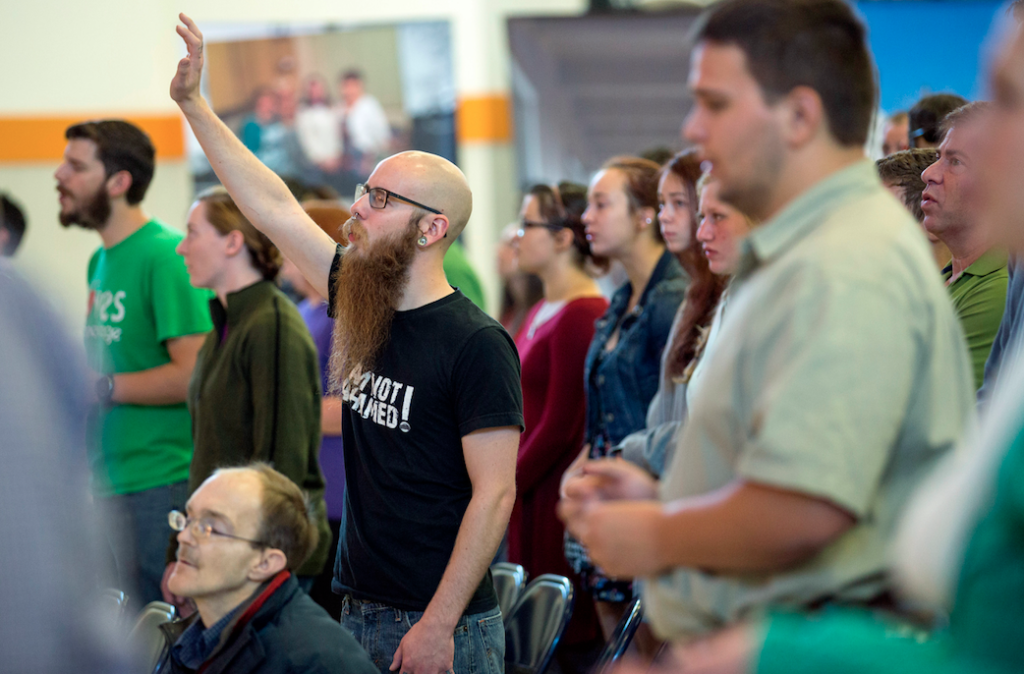By Jeff Christopherson
We like to say to “make disciple-making disciples” to inspire a vision for multiplication. But in the Great Commission, Jesus indicated you are not making real disciples if they are not disciple-makers.
Disciple making is what Jesus’ disciples do.
The Great Commission path
Go. Make disciples. Baptize. Teach.
It seems like a prescription. Others might call it a path of obedience. If the path is followed, multiplication will happen. So the Great Commission, at its fundamental essence, is simply a call to multiply.
The multiplication mandate
Here is an important kingdom fact: If you love the harvest, you will love other harvesters. If you are jealous of other harvesters, you simply do not love the harvest.
Why? Because the harvest is not really about you.
The realities of the harvest:
It’s big. “Jesus went to all the towns and villages … teaching … preaching … healing…” The task was beyond His personal capacity.
Prayer is our first strategic step. Our success is not a product of human will or resourcefulness.
The workforce is unlimited. “…send out workers.” The current reality is that the workers are limited. That is the bad news to which we can do little to change. But there is some very good news that God wants us to finally see. The potential workforce of harvesters is actually as big as the harvest itself.
Seventy-five percent of North America is without Christ. The majority of these people are living in densely populated urban places that have little gospel exposure. We simply don’t have enough “rock star” planters to build large harvest-gathering warehouses. I thank God for every one of the incredibly gifted leaders and communicators that lead large churches in North America—they’re often doing more than their share of the heavy lifting. But from Jesus’ instructions we see that North America will ultimately be won from His work within the harvest. New disciple-making churches must be started from a new harvest within the darkest places in our cities.
To further complicate this, 81 percent of the North American population resides in metropolitan areas. Following a Pauline missiological principle, the North American Mission Board has strategically focused much of our church planting energy and resources on 32 of these spiritually neglected cities of influence.
The Send North America strategy is not prioritizing the people in these 32 metropolitan areas as more important than the rest. We simply believe that they are not less important.
But even with a strategic priority like Send North America, if God does not send harvesters the fields will whither and die un-harvested. We can’t buy, strategize, or will our way into a greater harvest success.
Next step: A heart shift
The heart shift from addition to multiplication—from harvest to harvesters is seismic for perfectly good reasons. We must shift from an “each one reach one” mentality to an “each one, reach many.” No longer is the metric how hard can I work in the harvest, but how hard I can work for the harvest
Disciple-making disciples template
Matt and Arrica Hess moved their family from Memphis, Tennessee, to Pickering, Ontario, in 2012. Pickering had 13 evangelical churches for a population of 100,000 people.
“You have to be willing to let God shape what takes place,” Matt said. And this is exactly what they did. From the beginning, they made the seismic shift from making disciples to making disciple-makers.
Engage gather disciple is a process that they created to develop disciple-making disciples. More than a program or a class, Engage Gather Disciple (E.G.D.) is about creating a disciple-making culture.
The four major elements of the E.G.D equips disciples as disciple-makers:
- Become a gospel conversationalist
- Map out your social fields
- Gather to engage or disciple
- Work a discipleship path: stages
Although still early in the process, Matt is encouraged by what God is doing. Of those who attend Fellowship, 70 percent are previously unchurched.
The E.G.D. process is a contextual strategy to help new church plants and everyday believers become disciple-makers. If you are planting in a culture that is predominantly unreached and not even curious about the gospel, discouragement can come quickly. If your vision as a church planter is merely to make disciples, the road will be long. But if God gives you a path to making disciple-making disciples, then the kingdom impact possibilities dramatically multiply.
Jeff Christopherson serves as the vice president of the Send Network at the North American Mission Board. He and his wife, Laura, currently reside in Alpharetta, Georgia.
Published February 28, 2017
